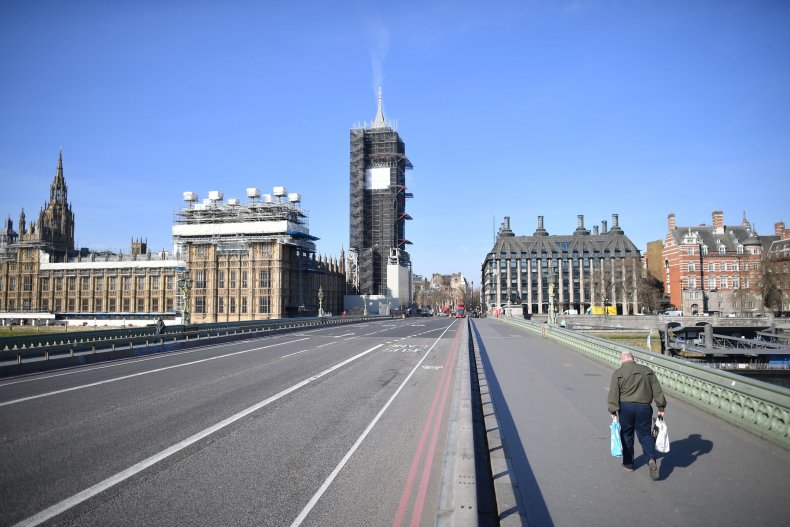COVID Lockdowns May Have No Clear...
COVID Lockdowns May Have No Clear Benefit vs Other Voluntary Measures, International Study Shows
A study evaluating COVID-19 responses around the world found that mandatory lockdown orders early in the pandemic may not provide significantly more benefits to slowing the spread of the disease than other voluntary measures, such as social distancing or travel reduction.
The peer reviewed study was published in the European Journal of Clinical Investigation on January 5, and analyzed coronavirus case growth in 10 countries in early 2020.
The study compared cases in England, France, Germany, Iran, Italy, Netherlands, Spain and the U.S. – all countries that implemented mandatory lockdown orders and business closures – to South Korea and Sweden, which instituted less severe, voluntary responses. It aimed to analyze the effect that less restrictive or more restrictive measures had on changing individual behavior and curbing the transmission of the virus.
The researchers used a mathematical model to compare countries that did and did not enact more restrictive lockdown orders, and determined that there was "no clear, significant beneficial effect of [more restrictive measures] on case growth in any country."
"We do not question the role of all public health interventions, or of coordinated communications about the epidemic, but we fail to find an additional benefit of stay-at-home orders and business closures," the research said.
However, the researchers also acknowledged that the study had limitations, and noted that "cross-country comparisons are difficult," since nations may have different rules, cultures, and relationships between their government and citizenry.
The study was conducted by researchers affiliated with Stanford University, and was co-authored by Jay Bhattacharya, a professor of medicine and economics who has been a vocal opponent of coronavirus lockdowns since March.
Bhattacharya was also among a group of scientists who wrote The Great Barrington Declaration, a controversial statement that encouraged governments to lift lockdown restrictions to achieve herd immunity among young and healthy people, while focusing protections on the elderly.
For additional context, other studies have oppositely determined that lockdown orders have effectively saved millions of lives.

A study published in the journal Nature by researchers at Imperial College London in June found that some 3.1 million deaths had been averted due to lockdowns across Europe early on in the pandemic.
"This data suggests that without any interventions, such as lockdown and school closures, there could have been many more deaths from COVID-19. The rate of transmission has declined from high levels to ones under control in all European countries we study," Dr. Samir Bhatt, an author of the study from Imperial College London said in June, according to the university.
"Careful consideration should now be given to the continued measures that are needed to keep SARS-CoV-2 transmission under control," he added.
A second study published alongside that report in Nature, and led by scientists in the United States, found that 530 million coronavirus infections had been avoided due to early lockdowns in China, South Korea, Italy, Iran, France and the United States, according to the news outlet.
Mandatory lockdown orders have also been a highly politicized issue across the U.S.
Some Republican leaders, including Florida Governor Ron DeSantis and Mississippi Governor Tate Reeves, have vehemently opposed state or nationwide closures to curb the spread of COVID-19. In Democratic states, including New York and California, lockdown orders have been a consistent part of the coronavirus response since March.
According to a poll released by Vox and Data for Progress on December 24, more than half of Americans said they would support a nationwide lockdown for one month.
But President-elect Joe Biden said in an interview in November that he had no intention of implementing a national shutdown when he takes office on January 20.
"I'm not going to shut down the economy. I'm going to shut down the virus," Biden said. "There is no circumstance which I can see that would require a total national shutdown. I think that would be counterproductive."
As of Thursday, the United States had recorded over 23 million COVID cases and 385,178 deaths since the start of the pandemic, according to Johns Hopkins University.
Newsweek reached out to an author of the Stanford study for comment, but did not hear back in time for publication.




Post a Comment